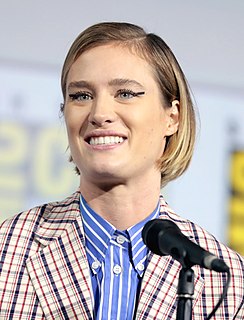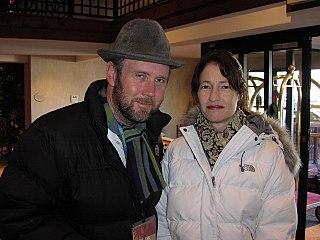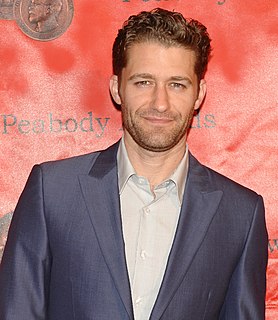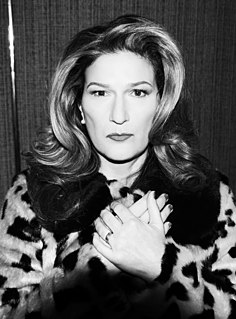A Quote by Mackenzie Davis
It's pretty rare that I watch a movie now without seeing the script in a way that I hate, where I can see the stage directions and the choices that the actors are making.
Related Quotes
All modesty aside, I think I'm good at reading scripts. The way I read a script is as fast as I can, all in one sitting, and I don't read many of the stage directions. I only read enough stage directions to let me know where I am, because they're always so verbose and mostly horseshit. So I only read the dialogue, which allows me to see the movie in my mind's eye in real time.
Throughout the entire history of philosophy, philosophers have sought to discover what man is - or what human nature is. But Sartre believed that man has no such eternal nature to fall back on. It is therefore useless to search for the meaning of life in general. We are condemned to improvise. We are like actors dragged onto the stage without having learned our lines, with no script and no prompter to whisper stage directions to us. We must decide for ourselves how to live.
A lot of actors choose parts by the scripts, but I don't trust reading the scripts that much. I try to get some friends together and read a script aloud. Sometimes I read scripts and record them and play them back to see if there's a movie. It's very evocative; it's like a first cut because you hear 'She walked to the door,' and you visualize all these things. 'She opens the door' . . . because you read the stage directions, too.
People seem to think that my movies are so carefully coordinated and arranged - and in a lot of ways, they are - but every single time I make a movie, I feel that every director makes these choices. You make choices about your script, you make choices about your actors, and how you're going to stage it, and how you're going to shoot it, and what the costumes are going to be like, and in every single detail, you make that decision. And for me, what ends up happening is, I wind up surprised at the combination of all these ingredients. It never is anything like what I expected.
You're always going to have ups and downs - if you look at the careers of a whole bunch of people I respect, some of them have good movies, some of them have bad movies. I remember Andrew Garfield said that the only power we really have as actors - or one of the main powers we have as actors - is our choices. We can make interesting choices, but as soon as you've made that choice, so much else is in play: the director, the script can change, the other actors. All you can do is try to make interesting choices and, once you're in it, just do the best you can.
You can't make theater happen without actors. The actor is the central ingredient in making theater happen. Audiences may come to theaters to see the work of stage managers, directors and producers, but the only people who can communicate theater magic to audiences, through ideas and emotions, are the actors. They are the only ones who can communicate this by themselves, and if necessary, they can get along without you. But you can't make theater without the actor.



































